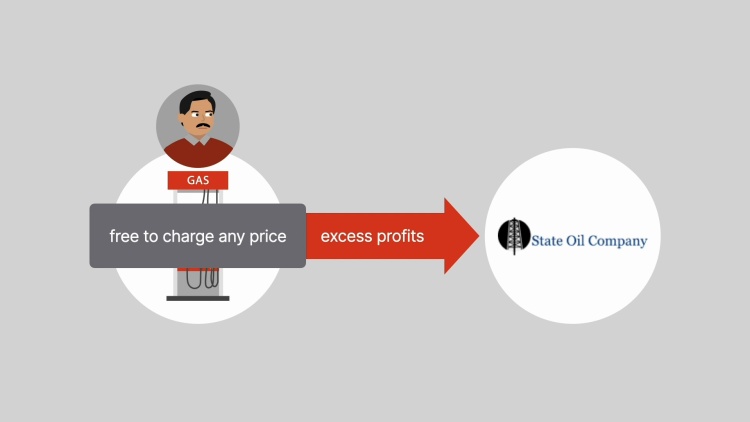State Oil Co. v. Khan
United States Supreme Court
522 U.S. 3 (1997)
- Written by Nicholas Decoster, JD
Facts
State Oil Company (State Oil) (defendant) owned a gas station that was leased to Barkat Khan (plaintiff). Under the terms of the lease, Khan would purchase gasoline from State Oil at a suggested price, minus a difference of $0.0325 per gallon. Khan was then free to charge customers any price for gas, but any surplus amount over State Oil’s suggested price was to be returned to State Oil in the form of a rebate. After a year of operation, Khan fell behind on the lease payments, and State Oil started an eviction process against Khan. A court-appointed receiver operated the gas station at State Oil’s request, and the gas station enjoyed a larger profit margin by charging more for premium gas without being held accountable to the price restraints in Khan’s lease. Khan responded by bringing a suit against State Oil, alleging that State Oil’s pricing policy constituted price fixing and a per se antitrust violation under the Sherman Act. By relying on Albrecht v. Herald Co., 390 U.S. 145 (1968), which held that vertical maximum price-fixing arrangements constituted per se antitrust violations, the court of appeals held in favor of Khan. State Oil appealed the decision.
Rule of Law
Issue
Holding and Reasoning (O’Connor, J.)
What to do next…
Here's why 904,000 law students have relied on our case briefs:
- Written by law professors and practitioners, not other law students. 47,100 briefs, keyed to 995 casebooks. Top-notch customer support.
- The right amount of information, includes the facts, issues, rule of law, holding and reasoning, and any concurrences and dissents.
- Access in your classes, works on your mobile and tablet. Massive library of related video lessons and high quality multiple-choice questions.
- Easy to use, uniform format for every case brief. Written in plain English, not in legalese. Our briefs summarize and simplify; they don’t just repeat the court’s language.





